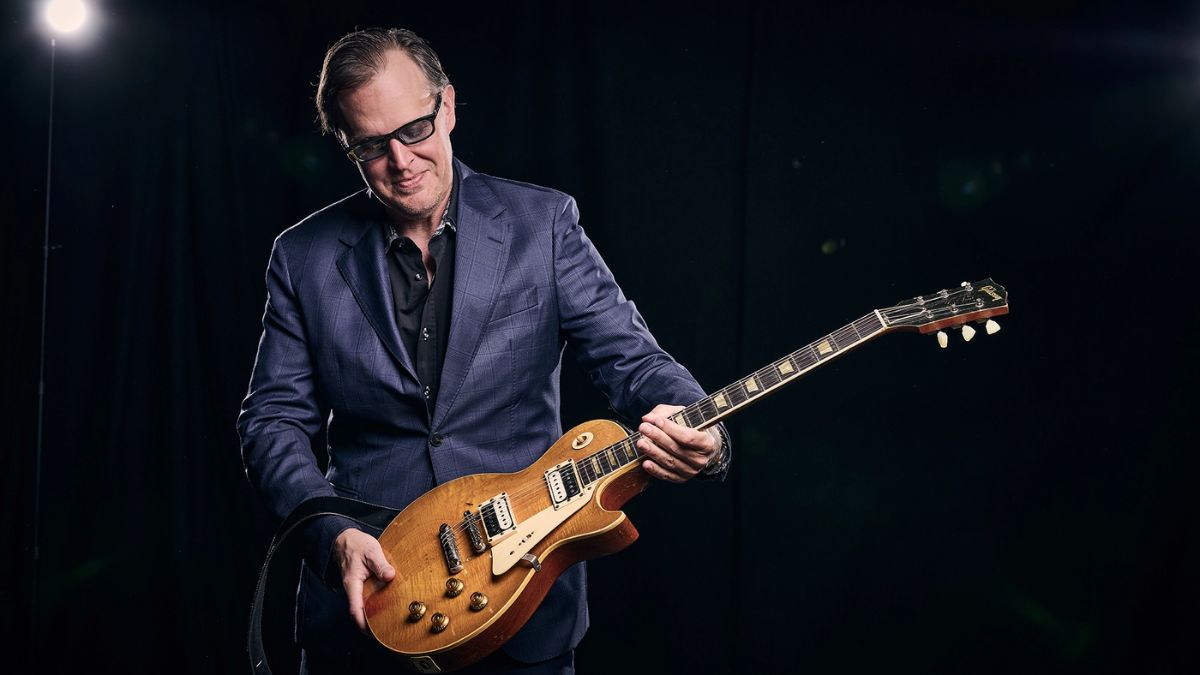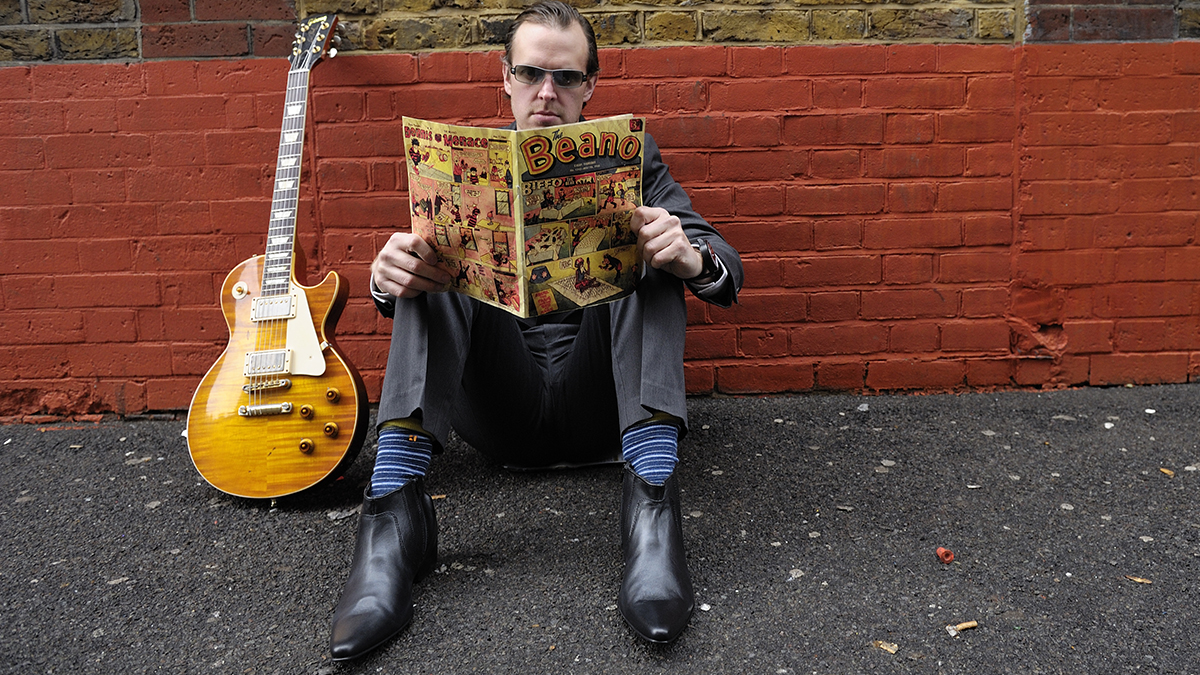“Keep doing what you’re doing and divide by two.” Joe Bonamassa on the playing advice he got from Leslie West 30 years ago — and how it's elevated his live performances
It turns out the late guitarist gave similar advice to another blues-rocker who made it one of his essential tips for other players

Before he even put out a single album, Joe Bonamassa received a key piece of soloing advice from blues-rock legend Leslie West.
But by his own admission, it took 30 years for him to put the tip into action. Now that he has, he says it’s elevated his live performances.
The guitarist recalls that he met West when the former Mountain guitarist made a guest appearance on a cover of Kenny Neal's "If Heartaches Were Nickels" on his 2000 debut studio album, A New Day Yesterday.
“He came to the studio in Ithaca, New York, when I was a kid working with [producer] Tom Dowd on what would be my first solo album,” Bonamassa says, setting the scene with Premier Guitar. “This was pre-production, and he guested on a track.
“And he, in that voice, goes: ‘You know, Joe, you’d be my favorite guitar player if you’d just divide by two.’ I’m like, ‘You mean half as many notes?’ He goes, ‘Right. Keep doing what you’re doing and divide by two.’”
It turns out he only half listened. He did indeed carry on what he was doing, but he wasn’t quite as eager to minimize his note count. Recently, though, he’s realized that West was onto something.
“I’ve noticed a change in my playing,” he extends. “Especially when I’m touring and we’re playing big venues over here, I’ve been using ‘divide by two.’ Every once in a while, you break through a frontier you didn’t even know you were gonna break through or didn’t even know existed.”
All the latest guitar news, interviews, lessons, reviews, deals and more, direct to your inbox!
It's a nugget of wisdom he's also passed onto Jared James Nichols, albeit in a slightly more blunt manner. West was in a wheelchair at the time, around a year before his death, and Nichols was due to support his show at B.B. King's in New York.
“Leslie wheeled over and strapped on his guitar. We started jamming — it was really cool,” he recalls. “Finally, he stopped playing and looked at me, and serious as can be he said, ‘Slow the fuck down!’ He meant it.”

Another recent breakthrough, he says, has come from a renewed focus on the acoustic guitar. He tells Premier Guitar that, “for years, I would just say I’m an electric guitar player.” That, too, is starting to change.
It started when he bought a “museum-grade” 1941 Martin 000-45, which has since been reissued in what Bonamassa calls “the honor of a lifetime.” That sent him down a slippery slope.
He, in that voice, goes: ‘You know, Joe, you’d be my favorite guitar player if you’d just divide by two.’
Joe Bonamassa
“Right after that, I got a 1942 000-18 from my friend Jim Hauer in Dayton, Ohio, at Hauer Music. And once I had the neck set and it came back, I was like, ‘You know what? I get it now. I get the acoustic,” he continues. “I’ve played a bunch of herringbones and stuff, but I was so focused on electric that acoustics would all sound the same to me.
“And I’ve found that my accuracy on the electric has improved by embracing the acoustic. Especially in the studio, if I’m producing a record and I’m playing on it, my chordal accuracy is a lot better.”
His interview precedes the release of his 17th solo album, “Breakthrough” (July 18), which may or may not showcase his newfound note-dividing abilities, but it will certainly be different from its kin in other ways. And it’s put his songwriting under the microscope.
“I approached this album from the point of view that the world does not need another Joe Bonamassa record,” he professes. “That’s why we ended up with 20 songs, 10 of which we were like, ‘Yeah, I’ve heard that before.’ We tried to concentrate on things that I haven’t done before, but when you have 50 albums out, including the live stuff, before you even get to the side projects, it’s hard.
“I’m trying not to repeat myself, but not abandon ship,” he adds. “The only thing I’ve abandoned is the notion that anything I’ll do will be pop music. I’m a niche guy. I’m not looking to get invited to the Met Gala.

“You’ve got to come in with some sort of idea. A title is great because you can write something about that. A riff is like, ‘Okay, then what are we going to say?’ Then you’ve just got to have a conversation. You try to find a broader concept and try to make it something that’s personal to you that will also be personal to your audience.”
Elsewhere, Bonamassa has explained the unlikely story of his "Royal Albert" Les Paul that was locked under a staircase for 50 years and cost him $190,0000, and has praised the versatility of Stratocasters, likening them to Swiss army knives.
He's also offered players his best guitar-buying advice and rebuffed claims that picking the right amp for a gig has cost a fortune.
A freelance writer with a penchant for music that gets weird, Phil is a regular contributor to Prog, Guitar World, and Total Guitar magazines and is especially keen on shining a light on unknown artists. Outside of the journalism realm, you can find him writing angular riffs in progressive metal band, Prognosis, in which he slings an 8-string Strandberg Boden Original, churning that low string through a variety of tunings. He's also a published author and is currently penning his debut novel which chucks fantasy, mythology and humanity into a great big melting pot.


